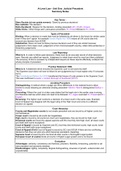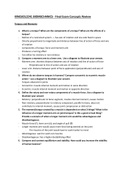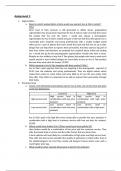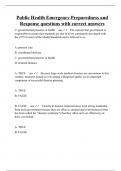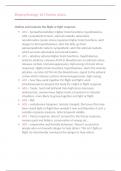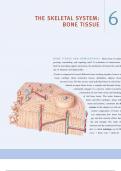A-Level Law - Unit One: Judicial Precedent
Summary Notes
Key Terms -
Stare Decisis (et non quieta movere): ‘Stand by previous decisions’
Res Judicata: The decision
Ratio Decidendi: ‘Reason for the decision- binding precedent- (R v R) (R v Howe)
Obiter Dicta: ‘Other things said’- persuasive precedent- R v Howe followed in R v Gotts
Types of Precedent-
Binding: When a decision is made that must be followed by all others in the future for similar cases
even if they don’t agree- for example Human Rights Act 1998 means all UK courts take into
account any decision from ECHR
Substantive: Does not have to follow previous decisions even if they are similar because:
judgement is from lower court, judgement is from Commonwealth country, obiter dicta sentences or
dissenting judgements
Law Reporting-
What is it: In order to follow past decisions, there must be an accurate record of what decisions
were. Records are called law reports. Judgement is noted down word for word and then published.
The accuracy of this is overseen by independent lawyers as these reports effectively underpin the
whole principle of precedent.
Practice Statement 1966-
What is it: A statement which ensures the Supreme court is not bound by itself
The Supreme court does not have to follow its own judgments but it must explain why if it chooses
not to.
The Constitutional Reform Act 2005 transferred the House of Lords powers to the Supreme Court.
This was confirmed in Austin v London Borough of Southwark (2010)
Avoiding Precedent-
Distinguishing: A method where a judge can show differences in the material facts to allow
him/her to avoid following an otherwise binding precedent- Merritt v Merritt distinguished Balfour v
Balfour
Overruling: Where the court in a later case states that the legal rule in the earlier case is wrong
and therefore bad law which does not need to be followed- R v Jogee overruled R v Powell and R v
English
Reversing: The higher court overturns a decision of a lower court in the same case. Example:
Court of Appeal may disagree with the legal ruling of the High Court and come to a different
decision on appeal.
Court Hierarchy-
County and Magistrates courts do not create precedent and are bound by all higher courts but
not themselves
Crown court is bound by all courts but magistrates
High court is bound by all courts but crown and magistrates- they are bound by high court
Divisional courts are bound by appeal supreme and ECJ but they bind high court, all lower courts
and itself (with some exceptions
Court of Appeal is bound by Supreme and ECJ but they bind divisional courts, high courts, lower
courts and itself (with some exceptions)
Court of Appeal (Civil) Court of Appeal is bound by ECJ and SCUK if there are two conflicting
decisions then they can pick one which becomes precedent- departing
Supreme Court is bound by ECJ but bind all other courts in the English Legal system
European Court of Justice binds all courts in English Legal system and is not bound
Evaluation-
Advantages: certainty, consistency and fairness, precision, flexibility, timesaving, potential to set
new precedent and prevents mistakes
Disadvantages: rigidity, complexity, illogical distinguishing, slowness of growth, undemocratic and
unpredictable
Summary Notes
Key Terms -
Stare Decisis (et non quieta movere): ‘Stand by previous decisions’
Res Judicata: The decision
Ratio Decidendi: ‘Reason for the decision- binding precedent- (R v R) (R v Howe)
Obiter Dicta: ‘Other things said’- persuasive precedent- R v Howe followed in R v Gotts
Types of Precedent-
Binding: When a decision is made that must be followed by all others in the future for similar cases
even if they don’t agree- for example Human Rights Act 1998 means all UK courts take into
account any decision from ECHR
Substantive: Does not have to follow previous decisions even if they are similar because:
judgement is from lower court, judgement is from Commonwealth country, obiter dicta sentences or
dissenting judgements
Law Reporting-
What is it: In order to follow past decisions, there must be an accurate record of what decisions
were. Records are called law reports. Judgement is noted down word for word and then published.
The accuracy of this is overseen by independent lawyers as these reports effectively underpin the
whole principle of precedent.
Practice Statement 1966-
What is it: A statement which ensures the Supreme court is not bound by itself
The Supreme court does not have to follow its own judgments but it must explain why if it chooses
not to.
The Constitutional Reform Act 2005 transferred the House of Lords powers to the Supreme Court.
This was confirmed in Austin v London Borough of Southwark (2010)
Avoiding Precedent-
Distinguishing: A method where a judge can show differences in the material facts to allow
him/her to avoid following an otherwise binding precedent- Merritt v Merritt distinguished Balfour v
Balfour
Overruling: Where the court in a later case states that the legal rule in the earlier case is wrong
and therefore bad law which does not need to be followed- R v Jogee overruled R v Powell and R v
English
Reversing: The higher court overturns a decision of a lower court in the same case. Example:
Court of Appeal may disagree with the legal ruling of the High Court and come to a different
decision on appeal.
Court Hierarchy-
County and Magistrates courts do not create precedent and are bound by all higher courts but
not themselves
Crown court is bound by all courts but magistrates
High court is bound by all courts but crown and magistrates- they are bound by high court
Divisional courts are bound by appeal supreme and ECJ but they bind high court, all lower courts
and itself (with some exceptions
Court of Appeal is bound by Supreme and ECJ but they bind divisional courts, high courts, lower
courts and itself (with some exceptions)
Court of Appeal (Civil) Court of Appeal is bound by ECJ and SCUK if there are two conflicting
decisions then they can pick one which becomes precedent- departing
Supreme Court is bound by ECJ but bind all other courts in the English Legal system
European Court of Justice binds all courts in English Legal system and is not bound
Evaluation-
Advantages: certainty, consistency and fairness, precision, flexibility, timesaving, potential to set
new precedent and prevents mistakes
Disadvantages: rigidity, complexity, illogical distinguishing, slowness of growth, undemocratic and
unpredictable

